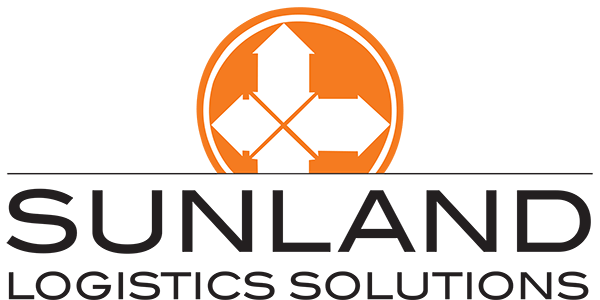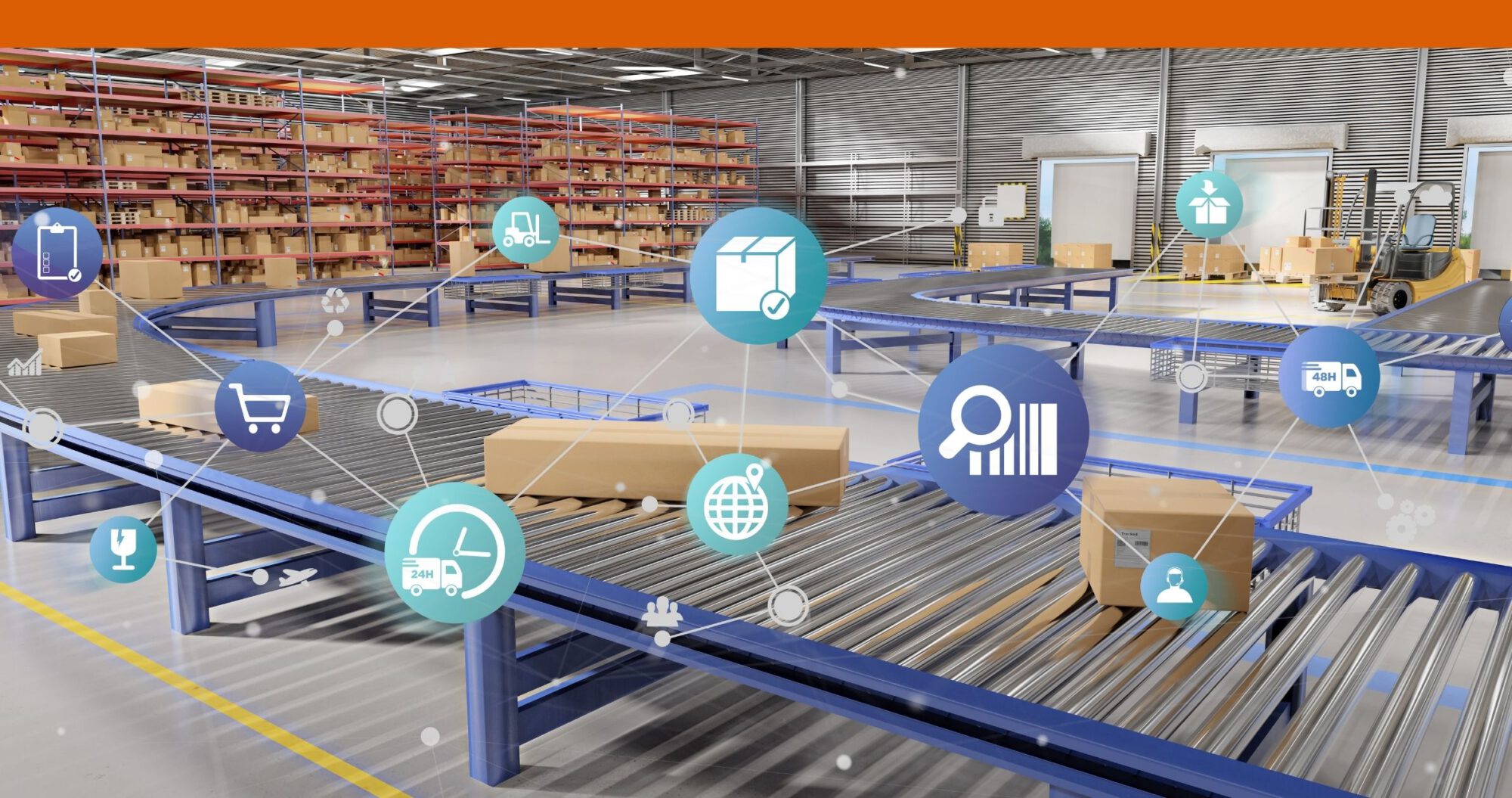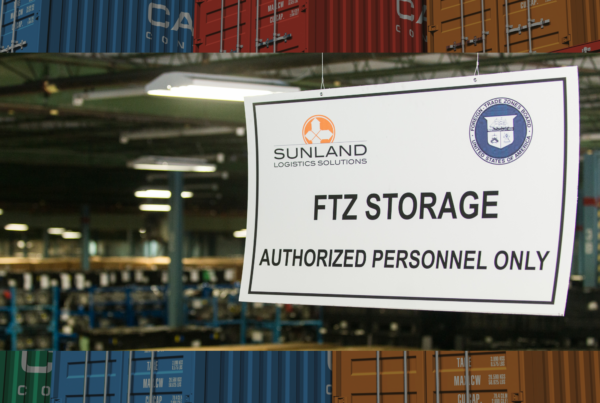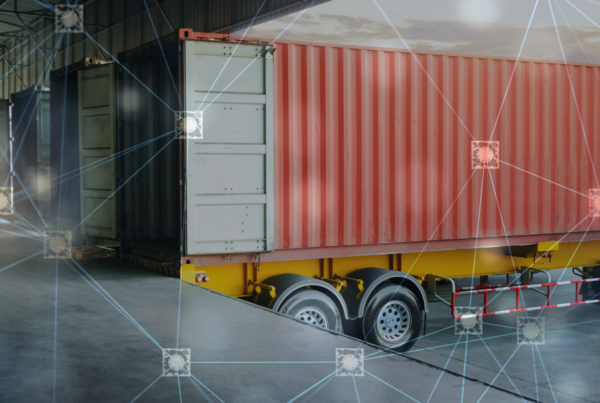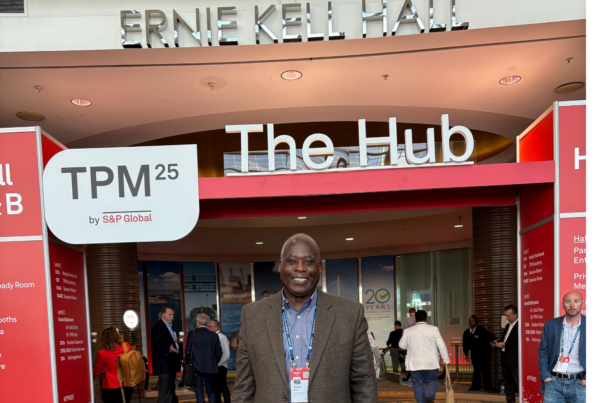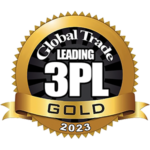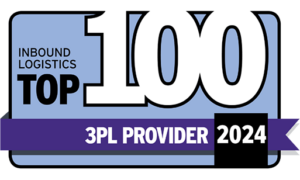If you are an eCommerce business and you don’t have an eCommerce fulfillment center partner, you could be missing out on some great benefits. Or maybe you are outgrowing your outsourced fulfillment, like Amazon. Maybe you are ready to branch out and grow your business. The good news is, you don’t have to be a large company or have a big supply chain team on staff – you can outsource your logistics and reap some incredible benefits.
We sat down with the Director of Business Development of Sunland Logistics Solutions, Amy Sartain. Amy has a background in eCommerce operations and is using that experience to help companies evaluate the solutions they need to advance their supply chains. Here’s what she had to say.
What is the main purpose of an eCommerce fulfillment center?
An eCommerce fulfillment center is a location where eCommerce companies ship their inventory. The eCommerce fulfillment center receives, stores, and ships those products to the buyer or customer.
Many eCommerce companies partner with manufacturers that make the products, and the inventory is shipped directly from the manufacturer to the eCommerce fulfillment center. That inventory is then stored at that center and kept there so that it is available to sell to the business’ ideal market at peak sales times. The business is able to take orders on their website and ship the orders from the eCommerce fulfillment center.
Having inventory at a fulfillment center closer to the customer makes the turnaround from sale to delivery as quick as possible. Holding products at a fulfillment center becomes especially important during certain times of the year to ensure capitalizing on sales from holidays or promotions.
Another key benefit is that the 3PL operating the eCommerce fulfillment center can partner with shipping carriers like UPS and USPS so that regular pickups can be scheduled, and the products can be quickly shipped directly to the customer’s location. They can also leverage their volume to provide discounted shipping pricing with these carriers.
What is a 3PL?
A 3PL, or third-party logistics company, acts as a partner to a retailer, distributor, or manufacturer. It can operate some or all of that business’s supply chain, often providing services such as receiving, shipping, and storing inventory. Many times, it coordinates transport services as well, either outsourced or in-house.
It acts as an extension of the business by taking on certain tasks such as helping with volatility in orders and executing orders. It can also provide more general guidance and act as an advisor on their supply chain in areas like how to reduce costs, capture more sales, inventory management, and so on.
What kind of companies would be searching for an eCommerce fulfillment center, and at what point does their business go from not needing one to now needing one?
Any size company selling physical inventory could potentially benefit from an eCommerce fulfillment. Ultimately, it really depends on the company’s overall business strategy. Sometimes it makes sense for a new online retailer to launch with a 3PL partner in place while other times it makes sense to wait because there are often setup fees or monthly minimums to consider. The most common variables to help determine whether or not to outsource fulfillment are tied to storage requirements of the products and order volume.
A good example of a type of retailer that would likely want to leverage an eCommerce fulfillment center from the start would be a furniture company. They typically have rather large products so fulfilling orders from home is usually out of the question. They need the space, team, and equipment to handle and store sofas, beds, tables, and other large items. All of this would require a substantial investment to manage in-house. Add to that they need to have the ability to offer fast shipping in order to sell with sites like Amazon and Wayfair. Having eCommerce fulfillment centers at various geographic locations close to the customer will allow for this.
Many eCommerce companies are working towards a two-day coverage so that may drive the need for more than one eCommerce fulfillment center for some products. Other types of products, such as apparel, may only need one location because of faster transit times and lower shipping costs.
Many companies that don’t have operations in the United States will turn to a 3PL operated eCommerce fulfillment center to manage their fulfillment.
What specific benefits does this provide that they otherwise wouldn’t be able to access?
Beyond the warehouse, there are IT solutions such as EDI with retailers and functionality from a warehouse management system that enables more efficient processes.
This places the eCommerce fulfillment center in the role of a partner for growth. These companies are growing in volume or sales channels, and it’s nice to partner with a logistics company that’s been there and done that, a company that can walk them through that process, from the basics of warehousing developing optimized inventory layout and productivity metrics to more complex issues like returns management and vendor compliance.
Compliance is a huge issue for many companies. When a company is not in compliance, it can incur some serious fines, not to mention the damage that is done to its reputation. It’s nice to have a logistics company that can lead you through these challenges.
To give you an example of how challenging it can get, prior to becoming a Sunland customer, one omni-channel company was spending over $1 million/year — that was 12% of their total eCommerce revenue — on compliance fines. Just compliance fines! That’s a lot of revenue to lose. A partner like Sunland can help them avoid those fines and navigate the compliance maze so they come out on top instead of throwing away revenue on fines. Companies like Amazon can penalize you if you don’t follow their compliance rules — but they aren’t the only ones. A logistics partner who can help you manage compliance is a valuable partner to have.
Warehouse space is another common issue. Companies often need flexibility as inventory grows for seasonality. It allows them to have extra room for the peak times, but off-peak, they may only use a fraction of it. Like the old Southern adage goes – “you don’t want to build the church for Easter.”
What services that 3PLs provide are most important?
There are three main services that are very important to eCommerce companies – Order accuracy, inventory management, and shipping optimization:
Order accuracy is absolutely vital to the success of an eCommerce business. This includes getting it to the customer when they want it and making sure it is exactly what the customer ordered. You only have one chance, one item, one order, to make an impression on the customer. And this is where 3PLs with strong warehouse processes are needed. They can help with solutions in IT and automation to improve quality.
Inventory management: Companies lose sales when they are out of stock or lose profits when they have too much inventory. A 3PL can help provide visibility to enable keeping inventory balanced and accurate.
Shipping optimization: 3PLs can provide solutions to monitor shipping methods used regarding price and delivery date, quickly comparing and choosing the most efficient and cost-effective option.
In most cases, reverse logistics is also a growing area of focus. The eCommerce company should work closely with the 3PL to align on the processes and customer experience. Some research indicates that approximately 20% of items sold online will be returned (even more from promotions and holiday sales). A 3PL can help manage these challenges by providing scalability, flexibility, and access to secondary markets.
Where should the eCommerce fulfillment center(s) be located, and how many should one have?
This goes back to the company’s strategy and two-day coverage that many companies need to stay competitive. As I said, smaller products like apparel may be able to get away with just one, but many, or maybe most, businesses elect to do a west coast eCommerce fulfillment center and an east coast eCommerce fulfillment center which typically gets them into the 90% coverage range. Some businesses even add a third in the Midwest or Texas area which gets them into the 95% range or even higher.
What expectations should a company expect to have from a strong 3PL partner?
The most important part of a partnership is strategic alignment. You want a 3PL that will help lead you towards your business goals. At Sunland we do that with a high-performance team that’s focused on helping the company grow, demonstrating process leadership that ensures KPIs are met consistently, and technology and innovation capabilities to provide visibility and automation into the relationship at the right time. All of this brings quantified value to the customer which translates to increased speed, reduced cost per order, and much more. The partnership should be focused on the goal of continuous improvement, not just going through the motions or just “doing the job” for the day. This helps to create strategic partnerships.
What should someone looking to partner with a new 3PL consider to make sure they’re the right provider for them?</h3?>
They need to clearly define their goals and needs that the 3PL will fill, but they should also leave room for added benefits or areas that they may not have considered. However, there are a few that are really important and are relevant to most industries.
First, they need to decide on the location they want to be in and make sure that their 3PL partner has a presence in that location. If they aren’t sure, just looking at their own order history and seeing where their customers are can provide some clues and help define a general area much of the time. Another option is to hand it over to a partner like Sunland allowing them to advise on locations.
Next, they should consider the volumes or capacities they want to achieve. They need to aggregate this info and think about where the company wants to be relative to where they are currently.
They also need to articulate what they want from that partner relationship, what they want the partner to do, or their role in the process. This needs to happen early on while roles are being established and expectations are being established.
Just having a vision for where you’re trying to go and getting a partner that wants to help get you there is a good place to start. And a 3PL partner like Sunland will help get you where you want to be.
